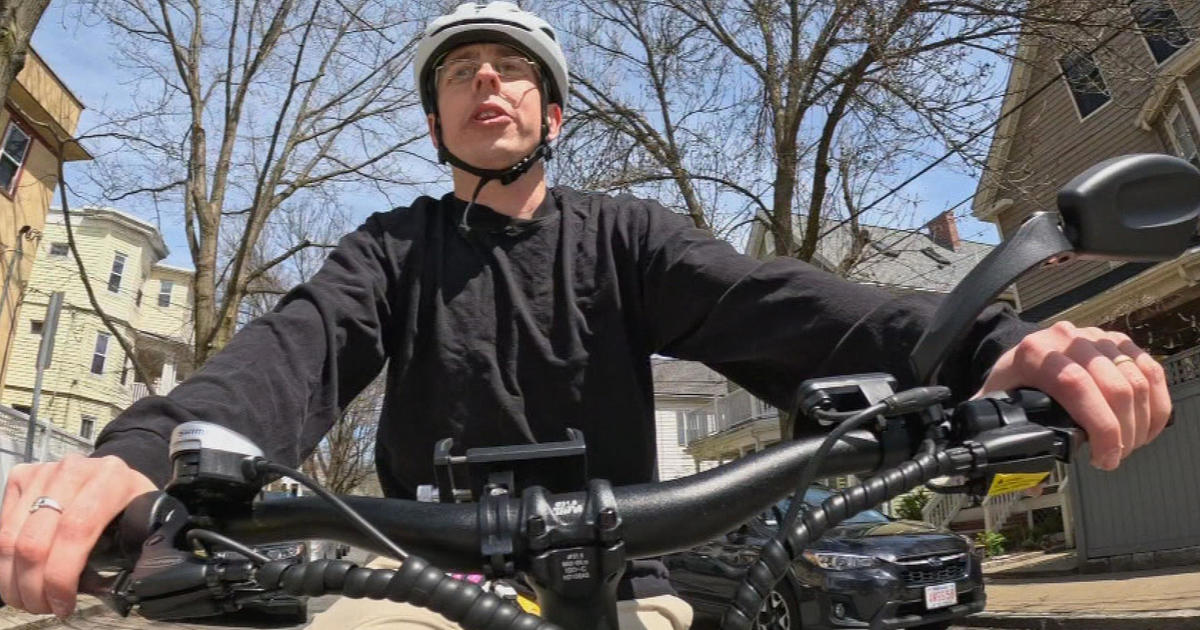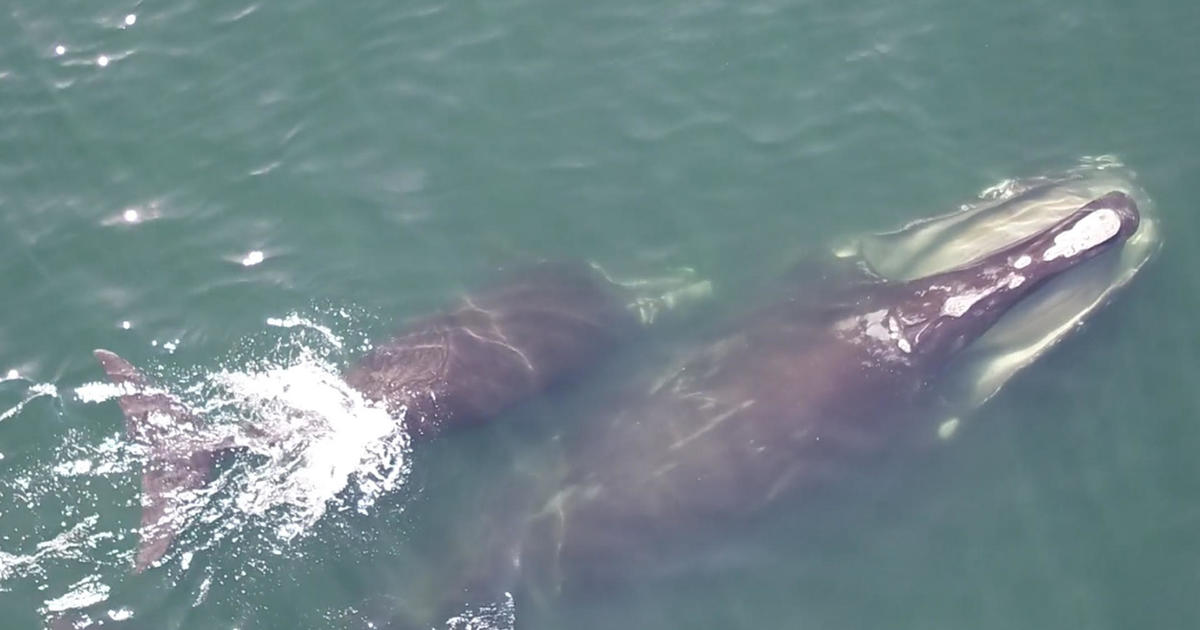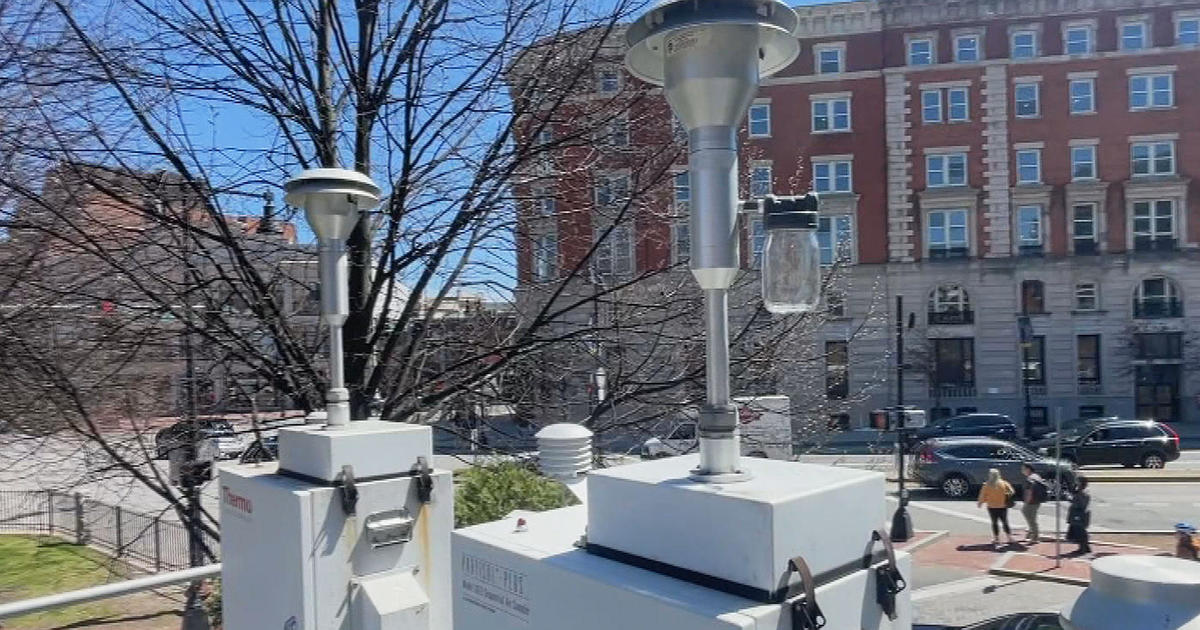Specialty License Plates Rake In Millions
BOSTON (AP) — In Massachusetts, car owners can wear their hearts on their license plates by paying extra for specialty plates that benefit an array of causes, from fighting cancer and protecting the environment to supporting youth hockey and discouraging abortions.
Since the first specialty license plates were issued in 1995, they have collected more than $73 million for nonprofit groups according to an Associated Press review of Registry of Motor Vehicles records.
One of the most popular plates depicts the tail of a Right whale and two Roseate terns flying above it.
The plate, one of the first introduced in Massachusetts back in 1995, is found on nearly 32,000 cars and has raised more than $18.3 million.
It's one of three specialty plates that benefit the Massachusetts Environmental Trust, established by lawmakers in 1988 and charged with helping preserve the state's coastal and inland waterways.
The trust has distributed $17 million through nearly 650 grants to nonprofit organizations, municipalities and educational institutions dedicated to protecting the state's ecosystems. Program manager Bill Hinkley said the plates are the trust's sole source of funding.
"People have been really great supporters of this program," he said.
Hinkley said while the money aids water resources across the state, whales continue to be a top concern. He said about $100,000 a year goes to the Division of Marine Fisheries, which in turn helps support the Provincetown Center for Coastal Studies which rescues whales that become entangled in fishing gear or nets.
The Trust also benefits from two other specialty license plates. One depicts a brook trout, meant to conjure images of central and western Massachusetts rivers and streams. A third plate features an image of a watermill representing the Blackstone Valley. Those plates are found on nearly 7,900 cars and have generated more than $2.1 million.
The single most successful specialty license plate is one celebrating Cape Cod, Nantucket and Martha's Vineyard.
The Cape and Islands plate, created in 1996, features an image of Eastham's Nauset Lighthouse along with the cliffs of Siasconset and Aquinnah. It has raised more than $20 million and is sported by nearly 45,000 cars in the state.
Leslie Richardson, chief economic development officer for the Cape Cod Commission said the money collected through the plates goes to local economic development commissions and chambers of commerce, including groups that make micro business loans and provide business training to local entrepreneurs.
She said the goal is to spur the growth of small companies and build a better business climate.
"The whole idea is to help the year-round economy on Cape Cod," she said.
Another popular plate features the Red Sox logo.
Money raised from the plate is divided equally between the Red Sox Foundation, the official team charity of the Boston Red Sox, and the Jimmy Fund, a fundraising arm of the Dana-Farber Cancer Institute.
More than 38,000 cars sport the Red Sox plates, which have raised nearly $7.3 million since they were first instituted in 2003.
Jimmy Fund Director Suzanne Fountain said the money is particularly valuable because it comes with few strings attached. She said half the money raised by the Jimmy Fund goes to cancer research with the other half going to patient care.
Fountain said the plates are also public reminders of the long partnership between the Jimmy Fund the Red Sox, which is celebrating its 60th anniversary this year.
"It's tremendous visibility for us with a partner who has been with us from almost the beginning," she said.
Most of the special charity plates cost an extra $40 above regular registry fees.
Of that initial $40, $28 goes to the charity with $12 covering a one-time fee for the cost of manufacturing the plate. When the plate is renewed every two years, the entire $40 goes to the charity.
There are currently more than 216,641 specialty license plates in circulation in the state now, according to the Registry of Motor Vehicles.
Among those are plates designed to benefits veteran homes, youth hockey, Boston Children's Hospital, the fight against breast cancer, animal welfare agencies, the Massachusetts United States Olympic Fund and child care services in the state.
Groups wanting to create their own plate must provide the RMV with a $100,000 bond. The registry will hold onto the bond for two years or until the number of the plates issued in the new series reaches 3,000.
If within the initial two-year period less than 3,000 plates are issued, the Registry will discontinue the plates and retain a portion of the bond needed to cover their costs.
One of the newest additions is a plate that benefits "Choose Life, Inc.," a nonprofit that supports groups that counsel women on alternatives to abortion, including adoption.
The plate, which features an image of a mother holding a child superimposed over a yellow heart and the words "Choose Life" is on more than 3,200 cars in Massachusetts and has raised more than $234,000.
Merry Nordeen, president of Choose Life, Inc., said she got the idea after hearing of a similar plate in Florida.
"I thought 'Gee that's a good idea, I would like that,'" she said.
Nordeen said she understands there are people who don't agree with the plate, but said it is meant to express the views of the individual car owner, not the state.
She said she is hoping to use some of the money raised by the plate to buy a mobile ultrasound which she said can be used by the groups to help discourage women from having abortions.
"It's very helpful especially if the woman is on the fence, if they're not sure if they want to keep their baby or not," she said.
Copyright 2013 The Associated Press.



